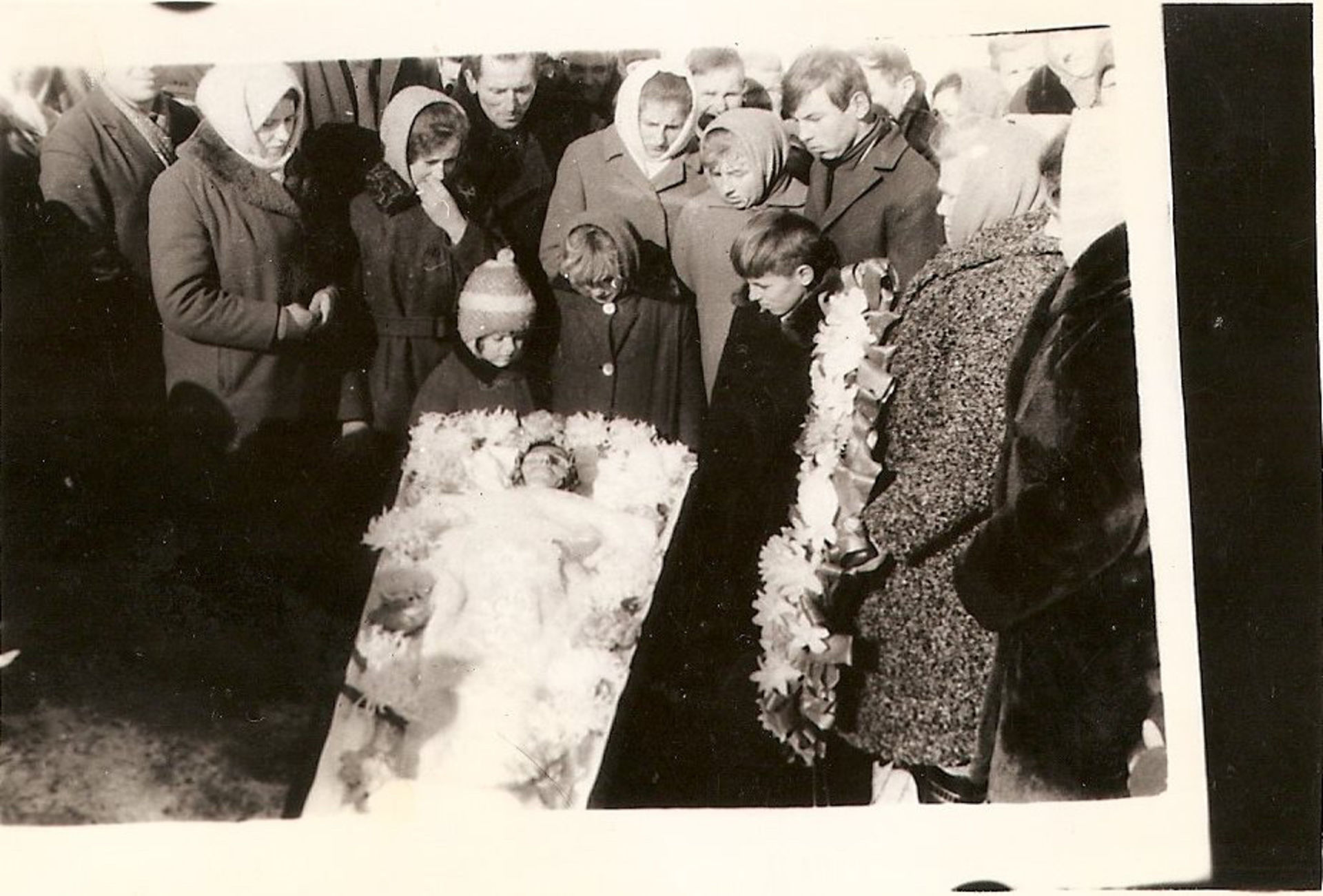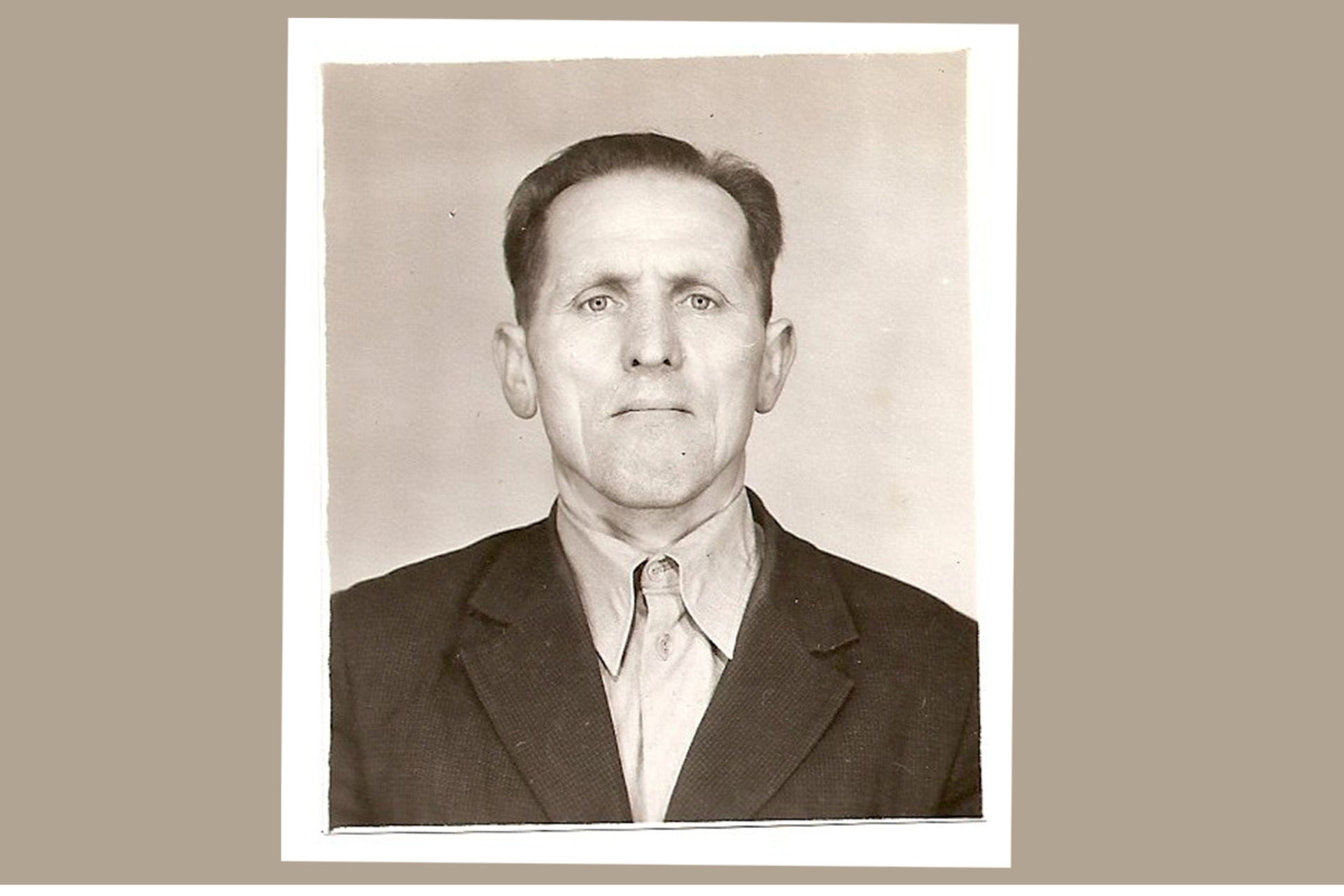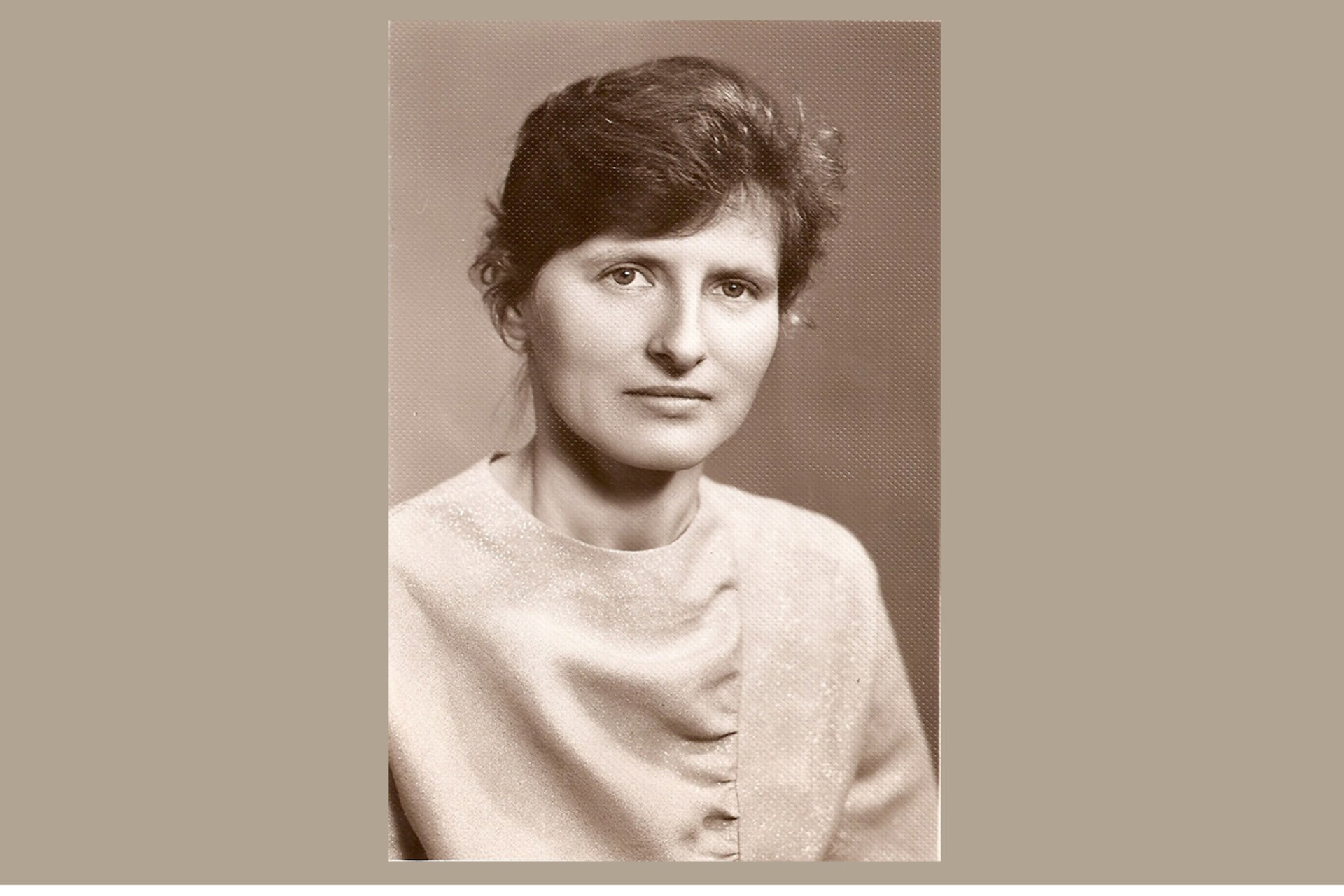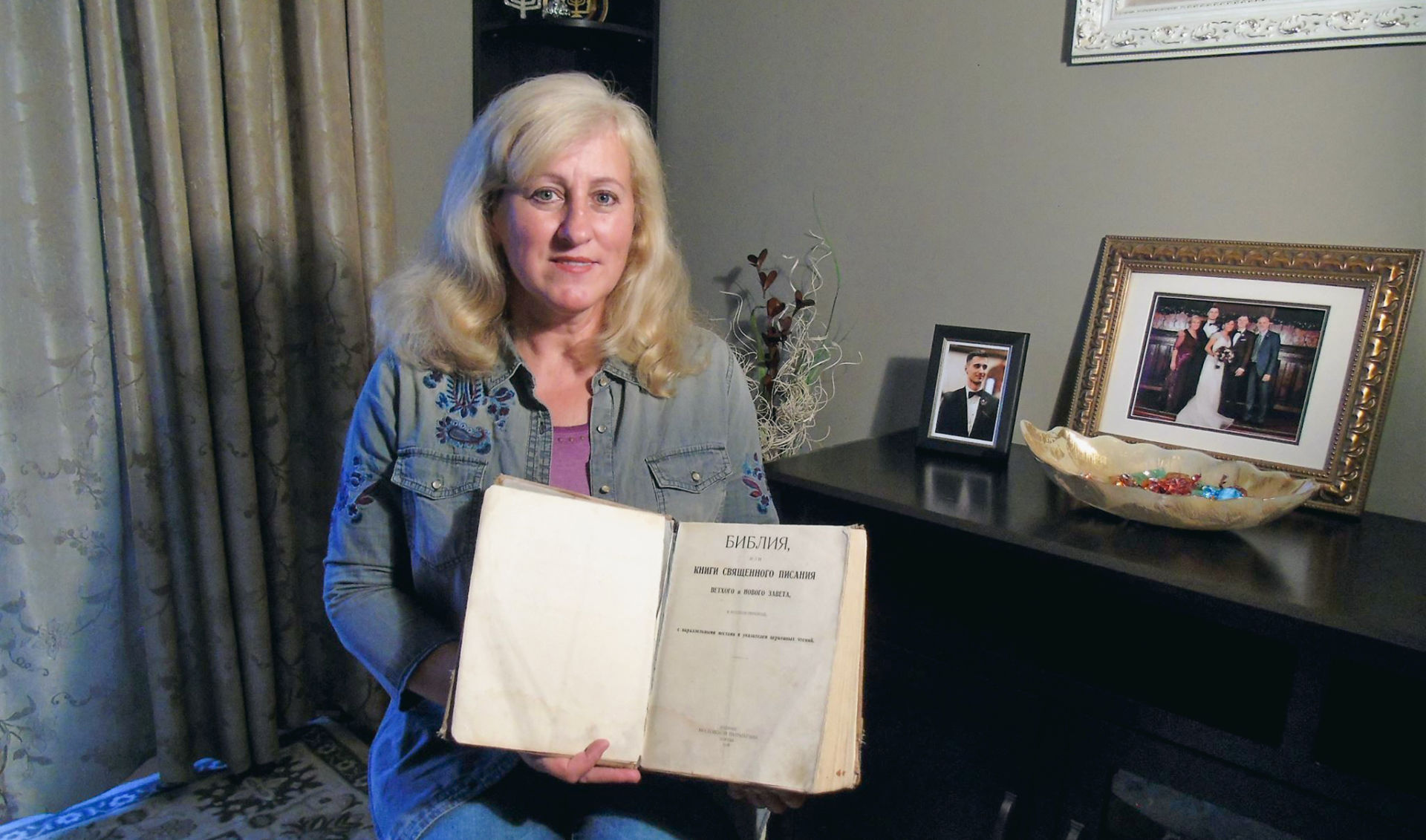My name is Luba. Luba, not Judah
There were eight kids in our family, me being the seventh. We were growing up as third-generation believers. My mum’s name was Druz Leah Ilyinichna (Lydia, according to her passport). She was born in 1932, in the village of Borbyn, Ostroh (now Mlyniv) district of Rivne region, Ukraine. She grew up in the family of believers. Her dad, my grandfather, Druz Ilya Kuzmich, had been imprisoned for his faith and served the sentence along with the man who would later become our father. Since they lived in neighboring villages, they kept in touch even after prison. That was the way my dad got acquainted with my mom.
It is hard to imagine how much turmoil my mother had to go through. At one point the authorities even tried to deprive her of parental rights and take us away from her. Mum went to be with the Lord at a rather young age. She passed away in 1972, a couple of months before my ninth birthday. She was 39 then. I can hardly remember what kind of persecution she had to go through but what I do remember is that while she was being treated for tuberculosis her general health condition suffered from rapid deterioration. She often complained about chest pains. We don’t have any doubts that while she was in hospitals she was literally reduced to death by prescribed medication. It was absolutely obvious because after she had complained about having pains in her heart the doctors didn’t pay any attention to her complaint or bother to discontinue administering the medication. Then father took mom home without an official release. No sooner had they returned home when the chief doctor came to our place in great hurry and not minding the children began to yell that he would have a criminal case opened against our father for not letting them treat our mom. When dad mentioned that mom was getting worse because of the medication they had been giving her, the doctor rudely replied: “Well, she hasn’t died yet!”
 Mother's funeral
Mother's funeral
I know my father’s life story quite well, though. His name was Romanets Makar Mikhailovich. He was born in 1925, in the village of Chornyzh, Tsuman district (now Manevichi ), Volyn region, Ukraine. His parents, Romanets Mikhail Korneyevich and Romanets Stepanida Semyonovna were devout Orthodox Christians. My grandfather used to keep his Bible on the table and he would always read it out loud since my grandmother was illiterate. When protestant missionaries had come from Russia, the local community sent my grandfather and a couple of other people to go and find out what kind of new faith they were teaching. That’s when grandpa literally took this "new faith" to his village. Before dekulakization (or defarming) he had been a well-off man, respected by his fellow citizens, therefore a lot of people immediately followed in his steps.
When my father was about 5 years old, something happened to his leg. It was either some serious infection or gangrene. The doctor said that dad didn’t have a chance or recovering and he had to have his leg cut off. Even though dad was little, he had heard his father read James 5:14-15 where it said that one had to ask for the elders of the church and pray, therefore he asked my grandfather to invite the elder from the village (my dad’s family used to live at the isolated forest farmstead on the outskirts). So, grandfather invited the minister and while the man was still praying, dad jumped up and started running.
For the first time dad was arrested when he was 20 years old. After the verdict had been pronounced father was convoyed to Gorky region. There he was regularly beaten up and starved. When in the 1940s he was sentenced to be shot he felt relieved. He was hoping that his suffering would finally end. All the prisoners of faith were subject to the following conditions: “Deny God and you will be free to go home tomorrow”. Some people did deny God, other remained faithful even in the face of death. That time, though, it happened the other way around. The men who denied God ended up being sentenced to be shot. It was alleged that “if they denied their God, they will betray the Soviet authorities, as well” Thus, my father’s sentence was quashed. Honestly, he was disappointed because he had already set his mind on the execution which could have saved him from physical suffering and now he was afraid that he would have to go through this nightmare once again.
 Father
Father
While we were living in Western Ukraine we had to face a lot of persecution. At one point the local authorities wanted to deprive the parents of three families, including ours, of their parental rights. They figured that their kids would be better-off in boarding schools. Even though this decision was not officially annunciated, the information had leaked and the church declared a three day fast. Unbelieving fellow villagers stopped working as a mark of protest against the authorities’ decision alleging as their reason that the police didn’t have any rights to take the kids away from well-respected families. Thus we were able to stay home with our parents.
Then on one occasion our prayer house was sealed off. Dad went ahead and took the seal off in order to continue church services. When the KGB noticed it, they began to look into who might have dared to do so. They questioned a lot of villagers reminding them that believers shouldn’t tell lies. When it was my dad’s turn to be interrogated he was sensible enough not to give direct answers. Based on his personal experience he knew what the consequences might be. Therefore he said: “If you seal the house off, put a guard next to it!” They didn’t have anything to say against this statement.
When the prayer house was shut down by the authorities we had church services outdoors. Nowadays believers may sit or stand while praying. Back in those days everyone had to kneel down. So, one day we were standing on our knees right in front of the prayer house when, all of a sudden, the KGB men came upon us and forced us to get up, grabbing kids who would fall right back on their knees. Other local kids who didn’t attend church started falling on their knees, as well, turning the whole situation into a fun game. By doing so they completely wore out the KGB men who grew tired of raising the resisting kids off their knees.
When I turned 6 years old we moved to Crimea, where our life became a bit easier. Unfortunately, even there believers had a hard time finding a job, or let me rephrase this, they were easily hired, but shortly after they had been employed the local authorities tried to find and excuse to reject them as unsuitable for a position. When believers took the hardest jobs, the administration did their best to deprive them of their bonuses or hold back their wages, which could be viewed as a last-ditch method, especially in the context of the Soviet times.
Nevertheless, having made sure that my dad was an honest diligent worker, the collective farm’s board offered him a job at the mill because they knew that he wouldn’t steal. Wherever he worked he always found a way to share his faith with other people, since there were so few believers among the locals. However, the KGB was looking for a pretext to “catch him red-handed” in order to initiate a criminal case. Once they secretly sent an officer from the Department Against Misappropriation of Socialist Property who asked dad to sell him a little flour. In a matter of seconds dad got the hang of him: even though the man had a cotton-wadded jacket on, which was common among collective farm workers, he had perfectly polished shining shoes on his feet. Father told the man to go to the collective farm office in order to make a legal purchase.
As for me, I had always been a straight-A student at school. When I was just a first-grader my teacher wanted to move me up to the third grade. A lot of teachers admired my keen mind and my desire to learn. When I was about to finish the eighth class I was tipped to have a great career but only under the condition that I denied God. I finished school with honors, but they didn’t give me the certificate of achievement which could have helped me to enter any educational institution without entrance exams. Back then believers were not given such certificated on different pretexts: the forms hadn’t been delivered on time, there is no official available to confer the certificate, etc.
Both teachers and students treated me differently. When some of them mocked my faith calling me stupid, others would stand up for me saying: “You are wrong, Luba is not stupid. She is a straight-A student!” Indeed, I was surrounded by different people, but my life was not as tough as my sister Vera’s who was ten years older than me. In the 1960s the teachers literally beat her for her faith. Sometimes they beat her so hard that she would come home from school with a swollen face. On one occasion the teachers tried to strangle her with a pioneer scarf yelling: “I will choke you, repulsive creep!” My parents didn’t have anyone to go with a complaint to, since all the beating happened with the consent of the superior authorities.
 Sister Vera
Sister Vera
Later I had to move to Yevpatoria in order to enter college. I was full of hopes that I wouldn’t be persecuted and would have a chance to obtain further education without any obstacles. Unfortunately, it was not meant to be. After I had got into college a female officer from the local state security department began to pay me visits. She would come every day and lecture me for at least thirty minutes until I gave up and quit my studies in my freshman year. That was nothing compared to the stories of some believers who almost completed their studies and at the very end were confronted with a choice: It is either God or diploma. Well, as a result I had to become a janitor despite all of my straight As.
One time I was looking after my nephew while my brother Pavel’s wife was at the hospital with their younger child. I was cooking on the terrace listening to the Soviet radio when there was a knock at the door and then a man entered the room. Hardly had I turned the radio down in order to hear the man, when he ran towards it and turned it all the way up. I was taken aback at first and couldn’t figure out what he was trying to do. Then I realized that he wanted to catch me listening to the Voice of America or some other enemy radio station. That was the new head of the local KGB department. I can still remember his name – Albert Alexandrovich Pasin. The KGB people loved driving around in their UAZ cars which we used to call “bobic”. I remember how they would park on the side of a road waiting for a good moment to drive up to you and start a small talk which would eventually lead to questions about yout “sects”.
In the 1980s the authorities tried to imprison my father once again, and therefore watched him and all of us very closely. I remember one time dad was leading a prayer meeting at our place when all of a sudden three police cars packed with officers parked by our house and the men rushed in to stop the meeting. They broke into the house and began a search. They confiscated all the audio tapes, manuscripts with sermons and even our family photos. I lost my temper, ran to the room straight through two police officers, opened the door and saw my dad sitting on the sofa and that very Pasin screaming at him: “I will foul your reputation, I will disgrace you! I will make every effort to hound you to death…” Then he saw me and yelled to his subordinates: “Why did you let her in? Close the door!’
Father was never afraid of such things. He taught us that persecution could start any minute. The old men who came to our home church were sitting in the kitchen. Among them was Philip, a seasoned old believer who was sentenced to 10 years in prison and eventually did his time for burning a pioneer scarf that his son was made to wear at school.
After that occurrence people began to spread the rumors that my father was caught at home having a telephone conversation with the president of the USA Jimmy Carter. Surprisingly, there were people who actually believed such nonsense. They believed that a simple villager could have access to the direct communication line with the leader of the United States. Everything imaginable was done in order to send my dad to prison.
Bishop Demyan Peshkov advised my dad to file a complaint with the Department of Religious Affairs, because Soviet legislation had been severely violated. And since it had been done in front of witnesses, the authorities had to take appropriate measures. After all they did nothing more than transfer Pasin to another district. Nevertheless, my dad had to undergo a trial in a “comrades’ court” and was penalized, but I don’t remember what the exact sum of the fine was.
As a result I couldn’t find a job in Nizhnegorsk because our surname had become a household word all over the district. Soon I was invited to meet with the head of the district KGB department. At first our conversations were absolutely pointless, but later he tried to “recruit” me to become an informer and report on my father so they would have an opportunity to send him prison once again. For a second I stood there dumbfounded but then I looked him straight in the eye and said: “My name is Luba. Luba, not Judah”. That’s when he flew off the handle. He jumped off his seat as if possessed by a demon. I was afraid that he would kill me right in his office. He yelled: “Get out of here now!”
Then perestroika started easing our lives a bit. My father was left alone for awhile. I moved to Jankoy and got a job at a machine manufacturing plant. There I was appointed a KGB officer disguised as a co-worker to keep an eye on me. Sometimes we would chat and joke around and one time in reply to his joking but barbed remark at believers I said: “There was one who tried to threaten me. He is gone now’. As if jokingly the man asked: “Who is gone?” I answered: “Pasin Albert Alexandrovich”. He said: “What do you mean he is gone? He is safe and sound, nothing bad had happened to him”. Then he even told me where Pasin was working and thus he completely gave himself away.
I was a good worker. The administration often praised me for my diligent work. There was another Christian woman at the plant. Unfortunately the administration gave us nothing but oral encouragement. I remember one time our shop foreman chose us for a cash bonus and we even had our pictures taken so they could put them up on the wall of honor. Sure enough, as soon as this information got to the plant management, they tried to withdraw our bonus, but they were too late – we had already got our 10 ruble bonus. Our pictures were never put up on the wall of honor, though. Six months later they simply gave us our pictures back.
My father was very sick and when he was dying, the doctor asked me: “Did he serve time in prison?” I was surprised and said yes. It turned out that dad suffered from liver cirrhosis. Everyone knew that he was a good man, he didn’t drink or smoke. That’s why it was obvious that his disease resulted from hardships and persecution that he had gone through.
Unfortunately, father didn’t see the changes in their fullness. He passed away in 1987. By that time he was respected and looked up to. The chief of the collective farm announced a day off for everyone who wanted to come to the funeral and extend their condolences and say good-bye to my father.
After my mother had died dad got married again. He and his wife had two children. My step mother and my half brother live two or three miles away and my half sister also lives nearby. We all have a wonderful relationship. On my mom’s side I am the 7th out of 8 kids, and on my dad’s – I am the 7th out of 10.
 Lubov Romanets, 2017
Lubov Romanets, 2017
All my life I had been dreaming of getting a university degree, but it seemed absolutely impossible. Then I moved to the USA and my first and foremost priority was to bring up children. Now I am 50 years old and I have finally got my long-awaited university degree! I have a red diploma (that’s what a diploma with distinction is called in the CIS countries due to its color), but it has nothing to do with communism!
About the project Pomnim (We Remember): We gather true stories of the believers who went through persecution during the Soviet epoch. We are going to publish them on this website. Besides we are working on a book. MORE INFO
Follow us on our website and on social media (Facebook, Vkontakte, Odnoklassniki, Instagram).
Are you willing to support the project and help us gather more stories (while survived witnesses are still living)? Do not hesitate, do it now. Time is precious. Literally. You can make a donation by using PayPal service www.paypal.me/pomnim

